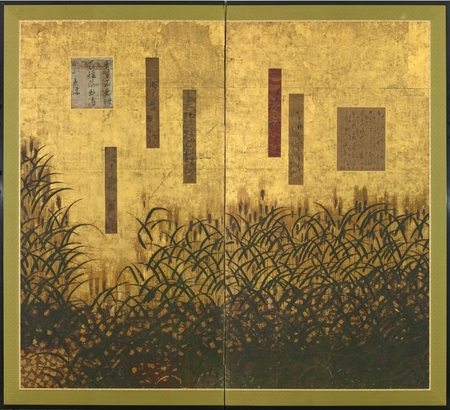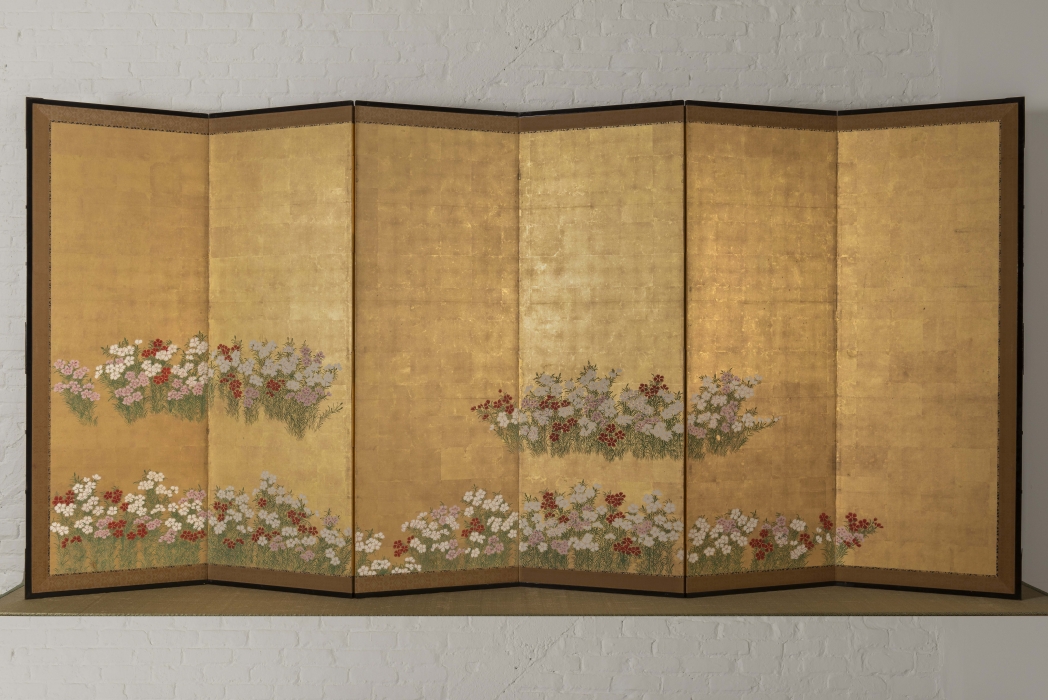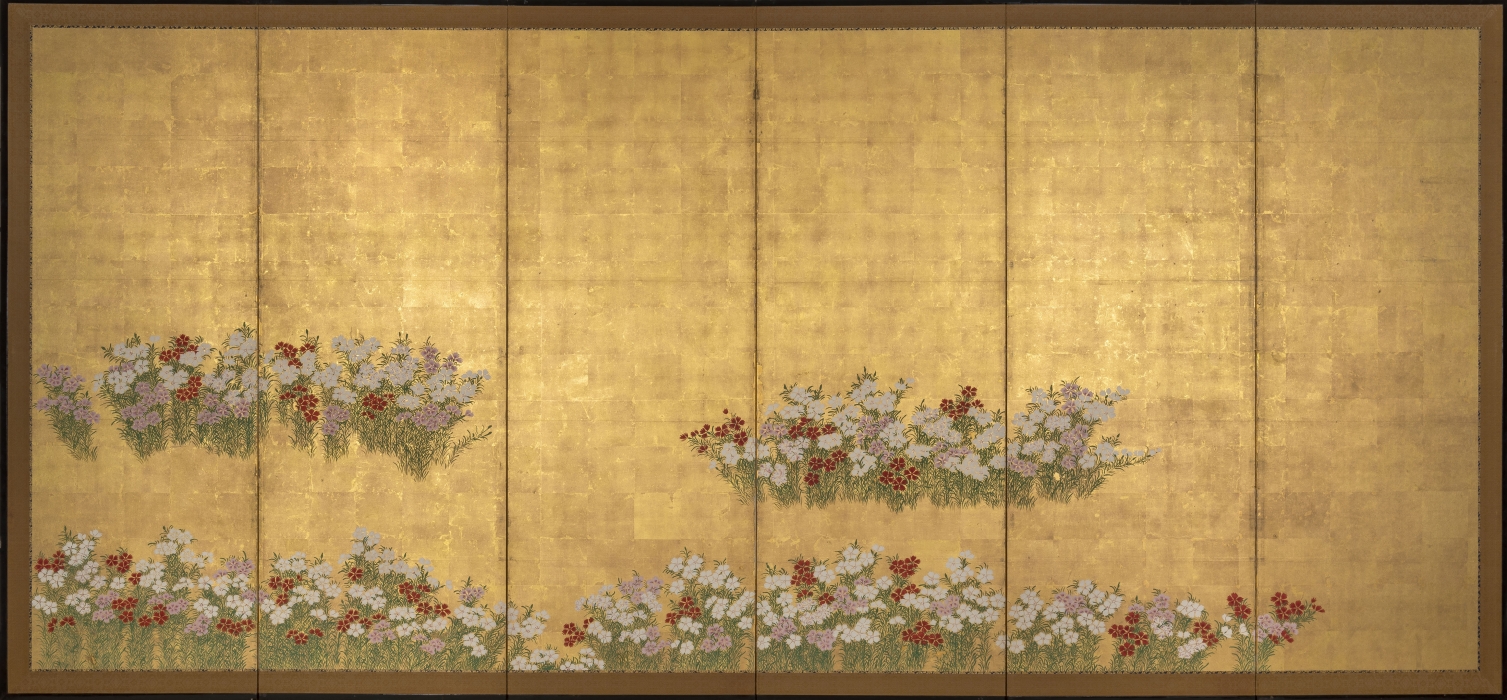Product Description
7154 A two-fold paper screen painted in ink and colour on a gold ground with mugi (barley) and shikishi (poem cards)
Japan 17th century Edo period
Dimensions: H. 65” x W. 71½” (164.5cm x 181cm)
Reading the shikishi from the right:
Poem slip 1: This slip contains a mixture of calligraphic phrases which include: Evening robe, Longing with bitterness, Welcoming the moon, Dream, Last autumn, Dew drops in a following cold morning, Forest of thoughts, A stream, Butterflies, Water, Summer, Heart, Spent days, In a cottage, My sorrowful existence, County folk in the mountains…
Poem slip 2: From Kokinshu (Collection from Ancient and Modern Times) 905 A.D. Spring, Upper volume, No.18
Kasugano no, tobuhi no nomori, idete miyo, ima ikuka arite, wakana tsumitemu
Oh guardian of the fields
at Tobuhi on Kasuga plain
go out to look how many days
before we pluck young herbs
Poem slip 3: Izumi Shikibu (born 976?) one of the Thirty-Six Immortal Poets. The poem was compiled in the Goshui-shu (Later Collection of Gleanings of Japanese Poems) Vol. 14, section 4, No.821
Karumo kaki, fusu i no toko no, i wo yasumi, sa koso nezarame, kakarazu mo gana.
Trampling down the dry grasses,
the wild boar reclines and makes his bed, sleeping soundly;
I would not sleep so well,
even without these feelings.
Poem slip 4: Sakanoue no Korenori (Heian period poet) Ogura Hyakunin Isshu (One Hundred Poems by One Hundred Poets) No.31
Asa borake, ariake no tsuki to, miru made ni, Yoshino no sato ni, fureru shirayuki.
In dawn’s first dim light, we might almost mistake them,
for morning moonbeams;
the snowflakes freshly fallen,
at Yoshino village.
Poem slip 5: Ōe no Yoshitoki (circa 1000) compiled in the Shūishu (Collection of Gleanings of Japanese Poems), Vol.6, No.350
Omohide mo, naki furusato no, yama naredo, kakure yuku hata, aware nari keri.
Although these are the mountains,
of my dear hometown,
which I see not even in my thoughts;
I can only say, Alas! as they hide from sight.
Poem slip 6: (poet unknown)
Waga omohi, to ii nika nika, yuu-chidori, nakuzuma no ura, kanashisa oeba.
My own thoughts, this and that, plovers in the evening,
crying at a bay,
sorrowful sounds.
Inscription 7: This slip contains a mixture of calligraphy including: rock, born, stone, surface, light, courage, short, drop, leave, to make, heart, small, faithfulness.
For a pair of screens with a similar subject matter by Maruyama Ōshin (1790-1838) in the collection of the Shin’enkan foundation see: Japanese Design in Art, Volume 14, Five Grains’ Vegetables and Fruits, p. 6 pl.4. and for a pair of six-fold screens with shikishi see: Nihon Byōbu E Shyūsei, Vol.7 Kachō ga, Plants and Flowers of the Four Seasons, p.52-53, pl.33-34.











